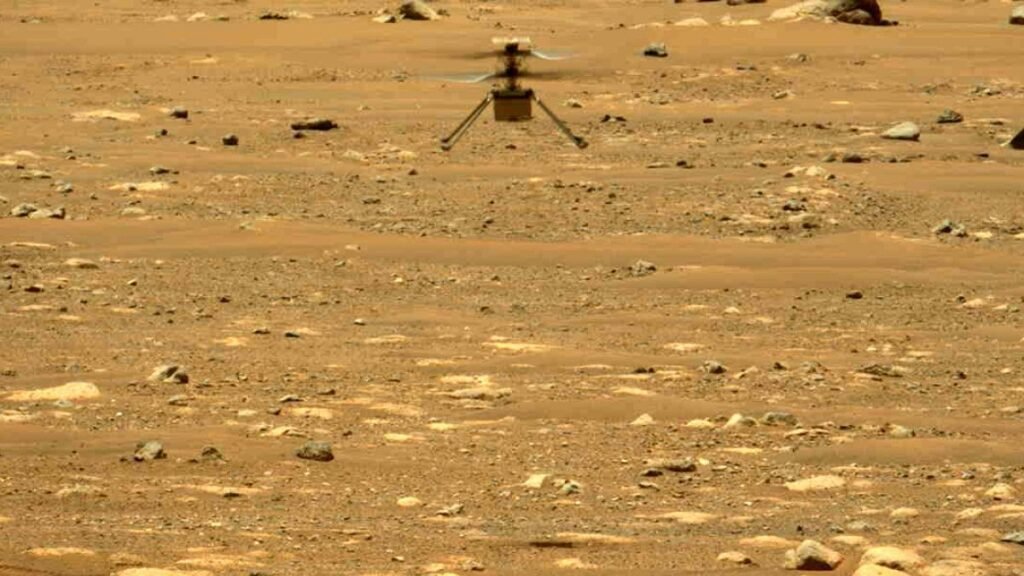According to the U.S. space agency, the helicopter’s rotor blades were damaged on January 18, making long-term flights impossible.
NASA’s small Ingenuity Mars helicopter has ended its mission because it is no longer able to fly.
“It is bittersweet that we have to announce that Ingenuity, the little helicopter that could, has made its final flight on Mars,” said NASA Administrator Bill Nelson.
A helicopter landed on Mars for the first time in 2021, flying dozens more times than expected, the US space agency said.
However, on its last flight on January 18, one or more of its carbon fiber rotor blades were damaged upon landing.
“That incredible helicopter flew higher and farther than we ever imagined, helping NASA do what it does best: make the impossible possible,” Nelson added in a statement. .
“Through missions like Ingenuity, NASA is paving the way for future flights in the solar system and smarter, safer human exploration to Mars and beyond,” he added.
The helicopter was originally designed to conduct “up to five experimental flights in 30 days,” but ended up staying on Mars for three years.
NASA said it completed 72 flights, traveling more than 14 times farther than planned.
NASA reconnaissance team on Mars
“That little helicopter could fly in 1 percent atmosphere, not 100 percent like we have on Earth. It could fly through 1 percent atmosphere. And it could fly through 1 percent atmosphere. What Nuity accomplished was far beyond anything we thought possible,” said Nelson.
Ingenuity will travel to Mars aboard NASA’s Perseverance rover, where scientists and the rover’s driver will eventually serve as scouts to check out the site.
The helicopter made a short vertical flight on January 18, reaching an altitude of 12 meters and hovering for nearly five seconds before descending. Ingenuity lost contact with the spacecraft just one meter above the service, but communications were restored the next day.
“Images arrived several days later revealing damage to the rotor blades. The cause of the communication loss and the helicopter’s orientation at touchdown are still under investigation,” NASA said.
In addition to assisting scientists in the search for life on Mars, “Ingenuity will pave the way for future flights in our solar system, leading to smarter, safer crewed missions to Mars and beyond.” “We are leading the way,” Nelson said.
